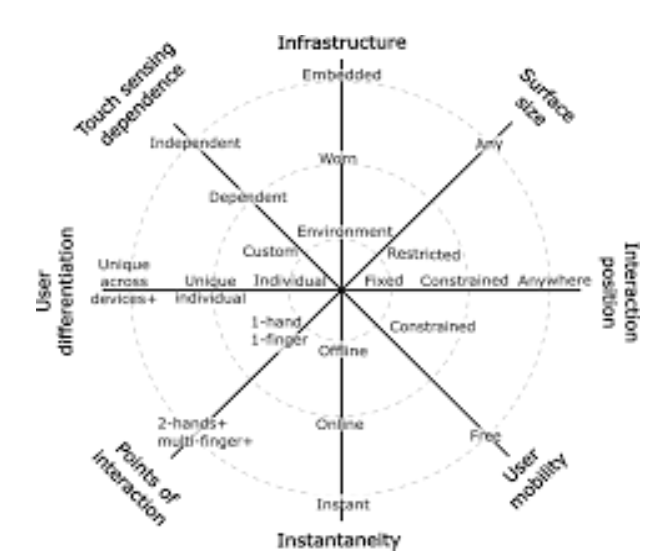
RevCO – The Impact of AI on Marketing
Revenue Collective event on Oct 6 2023
Treasure Island Museum, Woods Beer
October 6, 2023
Boris Valkov, CEO of Lace.ai, presented on the challenges of marketing to prospects who are suffering from information overload. Email, chat, and meetings generate lots of information, and the most important information (what is said and decided in calls and in meetings) is not captured in any permanent record.
Boris contends that sales meetings (discovery calls, follow-up calls and visits) are critically important, but opaque / invisible / unavailable to analyze or learn from. A few representative observations:
- “Cold calls are a black box”
- Discovery calls determine success rates more than any other event
- Revenue loss detection (win/loss analysis) is rarely done in real-time, when the knowledge is freshest but not recorded.
Boris contends that his company, Lace.ai, analyzes conversations to determine where the sales process hits roadblocks / helps a company focus on the invisible interactions that limit success.
Case Study: Virtual PBX
Lon Baker, COO at VirtualPBX, discussed his journey over the past two years as a Premonio customer. He stated that Premonio helped increase growth from 8% to 30% over the past two years, including growing revenue per customer by 18%. His suggestions:
- Smash assumptions. When Lon was hired in 2009, VirtualPBX was a mature company with a twenty-five year history of success. Lon had to challenge assumptions (like pricing sensitivity and who really makes purchasing decisions).
- Metrics matter. Lon worked across the company to change perspectives and to communicate the value of focusing on the right metrics and performance indicators.
- Cultivate a data-driven culture. It is really important that everyone agrees to collect data that can be measured reliably, and to work to improve everywhere possible to improve performance.
- Uncover hidden growth potential. Lon credited Johannes with helping the company find opportunities that had been overlooked in the past, and creating methods of reaching those new customers or unlocking additional revenue from existing customers.
Improving services and reducing costs through AI
Adi Vaxman presented via Zoom. Adi is the CEO of Sheba Consulting, and she described her company’s adoption of AI. Sheba Consulting provides fractional executive leadership and expansion services for businesses expanding their international growth. Sheba has increasingly moved from direct services to using LLMs and AI to help create audio and video assets for customers.
Adi discussed two different use cases.
The first use case was a large content publisher, helping the company adopt new tools to increase efficiency and to reduce costs. Her example was using AI-based tools to create images for ad copy, reducing the marketing spend for stock images from $60K to $5K per year … left unstated was the expense of these new tools, or the time required to train the staff on using them to create good images or credible copy. Adi claimed (unconvincingly) that her team was so good at using these tools that no one would be able to determine that they were written by a bot, and she did not mention what impact on staffing at this publisher might have been.
The second use case was a large medical practices group, where Sheba helped liberate EMR data, stripping it of HIPAA data to make it useful for analysis. Insights from this analysis included the fact that 38% of patients don’t show up for post-op care, and helped identify an opportunity to increase referral rates. Sounds a lot like old-fashioned business intelligence.
The group moved on to breakout panels on to Applying AI for Customized Outreach at Scale, led by Boris Valkov about weak sales processes.
Boris: Case Study
Measuring success building a pipeline: how do you know what works?
Weak Sales Process
The problem we were trying to solve was a low close rate.
Situation: The group leader was responsible for lead generation. The pipelines are healthy, but salespeople are not able to close enough transactions.
Problems identified:
- Salespeople are only selling to a single contact.
- Other decision makers are hidden.
- The number of decision makers has grown over time.
Possible Solutions:
There are two successful salespeople, so learning from them will be helpful.
Some lessons:
- Use the CEO and execs as fdr’s to open doors or have them join calls as closers.
- Have salespeople create account strategy plans define all the possible players on the decision
- Add fields in the CRM to track all the stakeholders, i.e. champion, decision maker, influencer, deal killer, etc.
Practical Applications of AI in Marketing
Laura Kamrath presented via Zoom. Laura is the CEO of Zebra Marketing Solutions, and she described the current AI landscape and discussed the tools being used to disrupt the marketing industry.
Laura shared a framework for analyzing a company’s performance on different axes:

- Awareness
- Engagement
- Lead generation
- Conversion
- Stickiness
- Reviews and testimonials
- Referrals
Laura discussed how Zebra helps companies develop a framework for predictable growth, using AI to help build that framework. It is a three-legged stool:
- Documented journey from prospect to customer;
- Actionable metrics to track and measure progress;
- Tools and tactics to achieve success.
Laura delivered a great overview of the many tools being used today, including real examples of the types of work that AI can do. She also referred to the cautionary tale of a lawyer being disciplined by a judge for submitting a legal brief written by ChatGPT that was largely fiction: “a legal brief for a case in Federal District Court that was filled with fake judicial opinions and legal citations, all generated by ChatGPT.”
The group closed the day with breakout panels about Working Problems Suggested by Attendees.
Prospect Hostility
Following up on the main theme from May’s Revenue Collective meeting at the Hiller Air Museum. Prospects have become hostile to lead generation efforts. Is this still true and what to do about it?
Problem definition: During the May session, three presenters said that prospects, particularly executives, were not just dismissive or lead generation entrees, but openly hostile.
Related questions
- Has LinkedIn become too diluted?
- Does email work as a communications channel?
- What about phone calls?
Possible Solutions:
- Send the prospect a series of direct mail letters
- Send the prospect a bonsai tree, puppy, or other small present
- Send communications to entire groups of prospects within one company
- Standard practice; be authentic, provide value and assistance, earn trust, and only then pitch for a meeting.
In conclusion, Revenue Collective crowd discourse has not only unraveled the complexities of AI in marketing but has also provided strategic insights and practical solutions for businesses navigating this transformative terrain. The journey continues as businesses embrace adaptability, data-driven decision-making, and innovative approaches to establish lasting success in the ever-evolving realm of AI-driven marketing.
Next Revenue Collective meeting is scheduled for January 25th, 2024 at 1 pm; go to the Premonio events page for more details.







